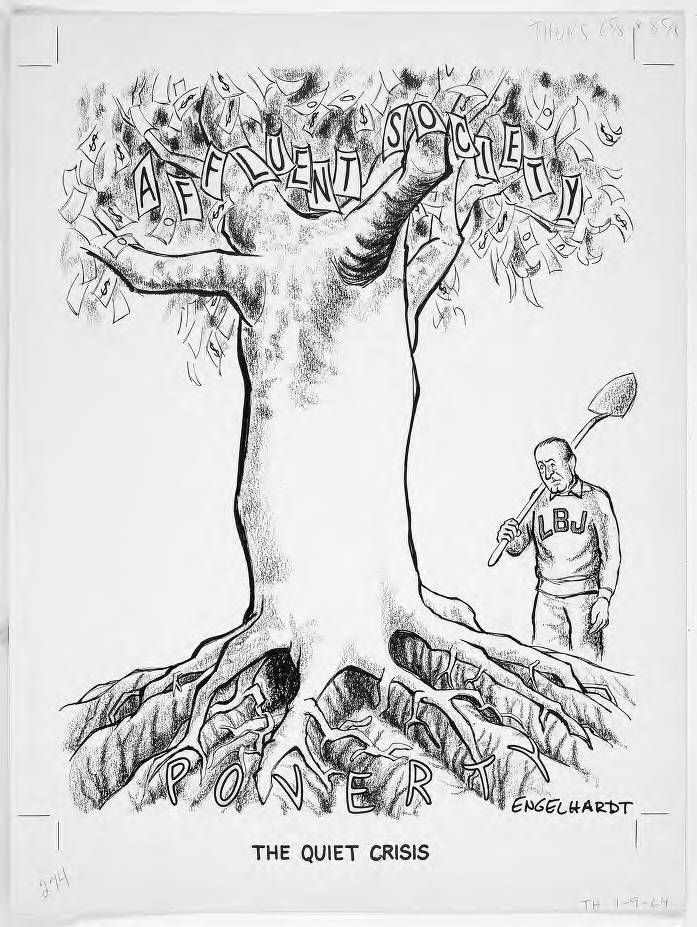The Affluent Society by John K. Galbraith (1958)
In this work, Galbraith acknowledges that the United States' current economy would lead to a larger divide between the upper class and lower class. While the upper class was spending their money on personal consumption, such as goods and services, the lower class struggled in poverty. Furthermore, he presented the concept of philanthropy in his book. Philanthropy is the desire to promote the welfare of others through the usage of one's wealth. For instance, the upper class could invest money to benefit society in its entirety through public services. This work inspired Johnson to start creating initiatives found through the book, eventually building the Great Society.
"I would now, however, more strongly emphasize, and especially as to the United States, the inequality in income and that it is getting worse—that the poor remain poor and the command of income by those in the top income brackets is increasing egregiously. So is the political eloquence and power by which that income is defended. This I did not foresee."
~ John Kenneth Galbraith, The Affluent Society
